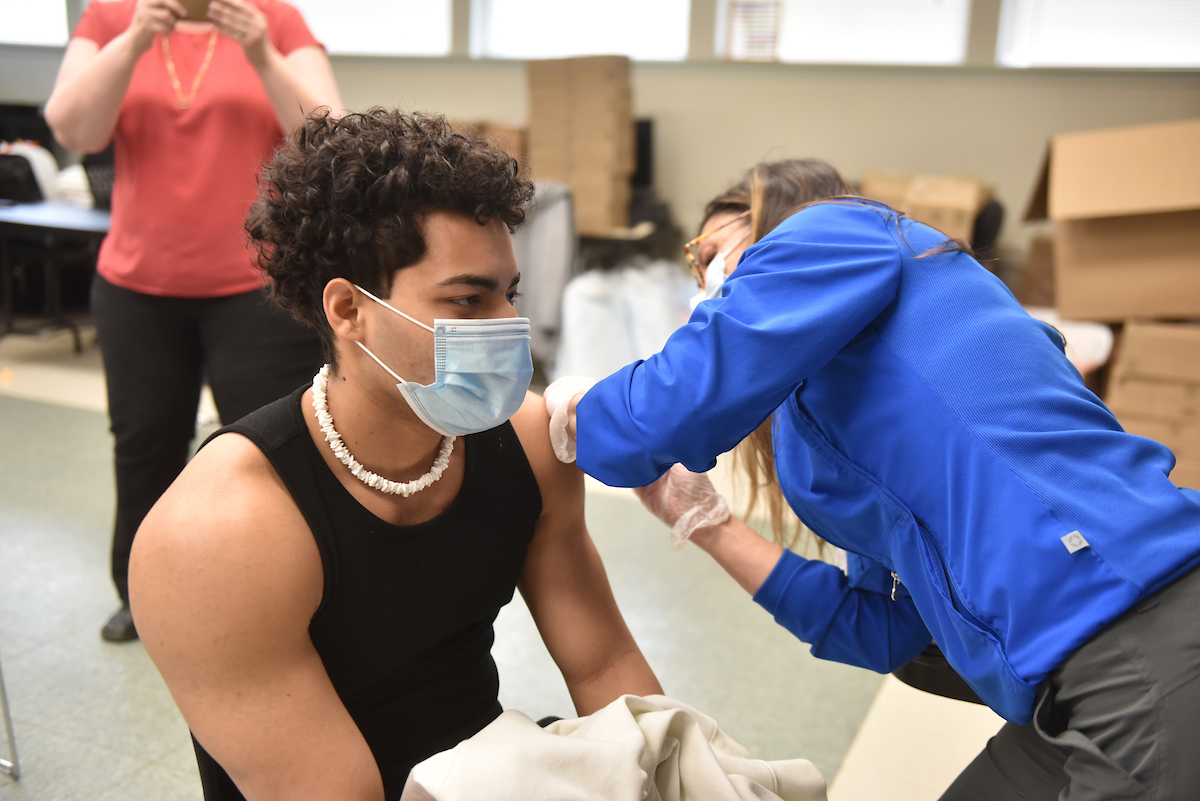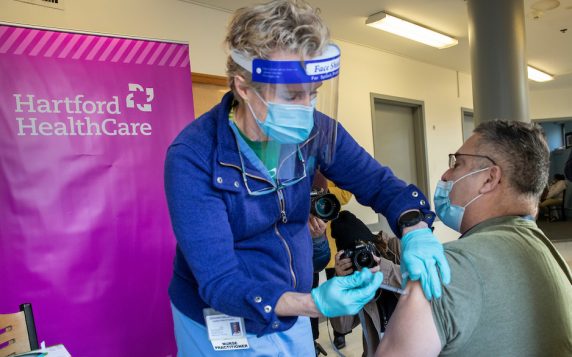By Dr. William Horgan
Regional Medical Director of Quality & Safety
Backus and Windham Hospitals
COVID vaccine supply is now outstripping demand, in part because all those who wanted to receive the shot and had the ability to get one have done so. Of those who remain unvaccinated, a portion are steadfast in their refusal to roll up their sleeve, while others simply don’t have the means to get into the system. Still others feel cautious, but remain open to the possibility of getting the shot.
To reach those latter two groups, the state Department of Public Health has partnered with United Way of Southeastern CT and Hartford HealthCare (including Windham and Backus Hospitals) to launch the Trusted Messenger Program.
In two recent meetings, 30 representatives from New London County social service departments, private nonprofits, and others gathered to hear how to effectively talk to their clients about COVID vaccines, and provide resources to get those individuals scheduled for shots.
As our Community Health Manager for Hartford HealthCare’s East Region Joseph Zuzel told the attendees, “All of you here sit in the role of the trusted professional. We want to give you the facts and the information around COVID vaccines so that you can address the concerns in your communities. This will help you advocate for these individuals and they in turn can advocate for themselves.”
Focusing on vaccine equity and ensuring that everyone in Connecticut who is eligible is able to get the shot involves three partners:
- The state of Connecticut, which is responsible for providing resources and information and coordinating vaccine distribution.
- Community partners, such as municipal agencies and private nonprofits that work with at-risk populations.
- Healthcare providers, which provide the vaccine.
Two recent examples of using trusted professionals to help promote vaccinations include a Hartford HealthCare vaccine clinic held at Windham Heights, and, in partnership with Generations Family Health Center, the vaccination of migrant workers at Prides Corner in Lebanon. Neither would have been as successful as they were without trusted messengers.
The community partners are essential in their role because they can share the correct information in multiple ways, including helping with vaccine appointments. Additionally, these agencies can advocate for the needs of their clients and stakeholders by providing the state and healthcare providers with feedback on how we can be better.
Nearly 3 million doses of the vaccine have been given in Connecticut, and more than half of the adult population has been vaccinated. But it’s important to understand that the national “goal” of herd immunity with 70 percent vaccinated doesn’t take into account that certain demographic groups are not reaching that threshold because of accessibility issues, fear and mistrust of government.
These collaborations are so critical because otherwise the virus will continue to decimate these communities. As healthcare providers, we need to know what these populations need, what are their barriers to getting the vaccine, so we can respond.
Barriers that have been identified include:
- Poverty.
- Non-English speaking.
- Medically frail/disabled.
- Geographically isolated.
- Lack of a primary care provider.
- Lack of Internet access.
- Lack of transportation.
- Mistrust of the government.
- Immigration status.
It’s estimated there are about 25 percent of adults in the U.S. who currently say they will not get the vaccine. Of those, 18 percent say if the vaccine were available and someone they trusted either gets it, or recommends they get it, then they would agree. These are the people we are hoping to reach through the Trusted Messenger program.


